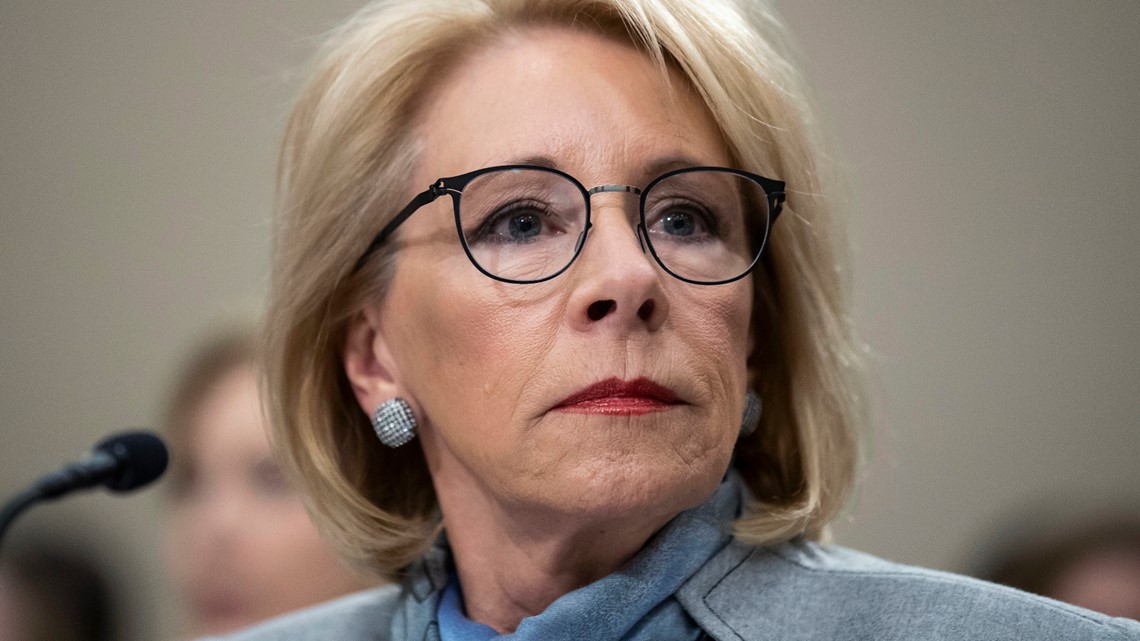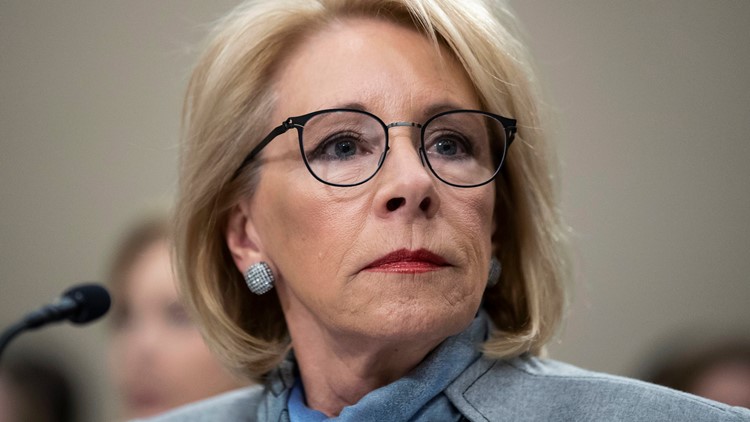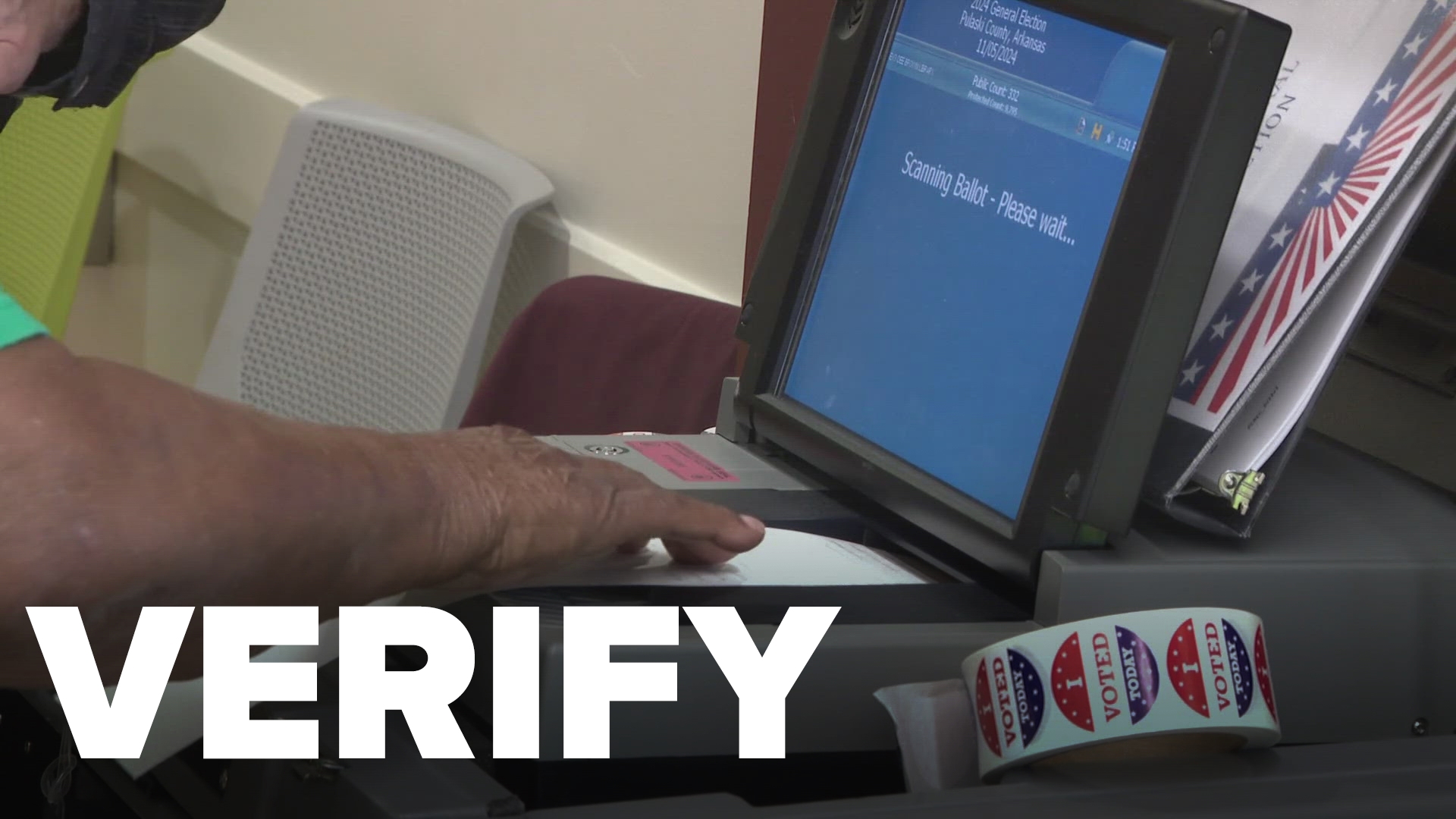The Trump administration on Thursday moved forward with a policy ordering public schools across the U.S. to share coronavirus relief funding with private schools at a higher rate than federal law typically requires.
Under a new rule issued by Education Secretary Betsy DeVos, school districts are ordered to set aside a portion of their aid for private schools using a formula based on the total number of private school students in the district.
The policy has been contested by public school officials who say the funding should be shared based on the number of low-income students at local private schools rather than their total enrollments. That's how funding is shared with private schools under other federal rules that Congress referenced in the legislation creating the relief aid.
But DeVos on Thursday said the funding is separate from other federal aid and was meant to support all students.
“There is nothing in the law Congress passed that would allow districts to discriminate against children and teachers based on private school attendance and employment," DeVos said in a call with reporters.
The difference between the two formulas amounts to tens of millions of dollars. In Louisiana, for example, private schools are estimated to get at least 267% more under DeVos' formula. In the state’s Orleans Parish, at least 77% of its relief allotment would end up going to private schools.
The Education Department issued the rule through a process that's typically used in emergencies and immediately gives the policy the force of law. DeVos said urgent action was needed after dozens of private schools permanently closed as a result of the pandemic. She called it a “looming crisis” for the nation.
DeVos is a longtime backer of private schools and has championed school choice through her career. Since last year, she's been pushing a plan to provide tax credits for scholarships sending students to private schools or other education options. She and Vice President Mike Pence promoted the plan Tuesday at a school choice event in Wisconsin, but the measure has yet to gain traction in Congress.


The new rule largely mirrors guidance DeVos issued in April telling districts to share relief aid based on the total number of private school students in their areas. The new rule provides one exception, though: Public schools can use the low-income formula if their own relief aid is used entirely on the district's low-income students.
Money that's set aside for private schools must be used to provide “equitable services” to their students, which can include busing, counseling, tutoring and summer programs.
Any private school can request support from its local district, but the new rule urges wealthier schools to reject it. The policy says taxpayer funding shouldn't go to “boarding and day schools with tuition and fees comparable to those charged by the most highly selective postsecondary institutions."
Democrats and public school officials condemned the rule, saying it gives private schools a disproportionate share of the aid. Rep. Bobby Scott, D-Va., chairman of the House education committee, urged DeVos to withdraw it and "follow the law that Congress enacted.”
“The department should be providing clear leadership and guidance to help students, parents and school districts cope with the impact of the pandemic. Instead, it has issued another confusing directive that will undermine efforts to maintain access to education during this pandemic,” Scott said.
DeVos previously vowed to pursue a federal rule on the issue after some states said they would ignore her guidance. Indiana's education chief said the guidance was no more than a recommendation and decided to divide the funding “according to Congressional intent and a plain reading of the law.”
The dispute centers around a single passage in the federal relief bill that allotted $13 billion for the nation's schools. The legislation said public schools should set aside funding to provide services to private schools "in the same manner as” they do under Title I, a federal funding program for low-income schools.
Public school officials say Congress clearly meant to carry over the low-income distribution formula from the Title I program. Democrats have said that was their intent, and Sen. Lamar Alexander, R-Tenn., chairman of the Senate education committee, has said that's what most of Congress expected.
But top Education Department officials have questioned the meaning of the phrase “in the same manner as," arguing that if Congress wanted to replicate the Title I formula, it would have used the phrase “according to."
Although the rule takes effect immediately, the Education Department will be opening it for 30 days of public comment to gather feedback.
DeVos has been accused of bending the formula to benefit the private schools she has championed. On Thursday, the School Superintendents Association said the rule represents “an opportunistic money grab, using the pandemic environment to advance the privatization agenda.”
But DeVos argued that all types of schools have been hit by the pandemic and deserve relief.
“Now is the time to focus on doing what's right for all students,” DeVos said.


